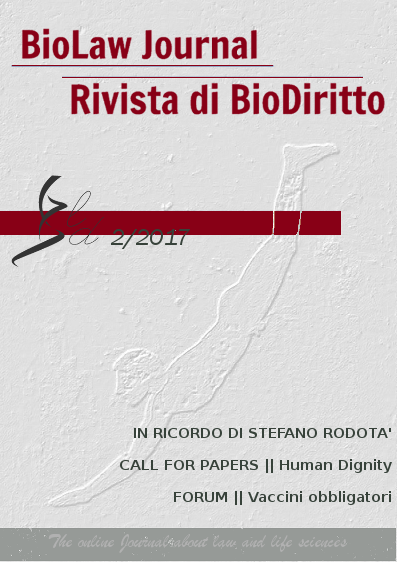Perché non è giusto vietare l’accesso alla riproduzione assistita alle donne in menopausa
DOI:
https://doi.org/10.15168/2284-4503-242Parole chiave:
assisted reproduction, motherhood, parental rights, bioethics, in vitro gametesAbstract
Law 40/2004 on assisted reproduction states that access to medically assisted procreation techniques may be available to couples of different sex, conjugate or cohabiting couples, potentially fertile, both living (article 5). Where "potentially fertile age" means the age at which men and women may normally have a child from their gametes. In our species, men are "potentially fertile" for entire life, as they can produce sperm capable of fertilizing an egg until death. Fertility of sperm also diminishes over time, but a man may have a biological child (starting from his own sperm) even in a very advanced age. Women, on the other hand, are considered "potentially fertile" up to the age of 51 because, on average, it is from this age that they no longer produce fertile oocytes. Starting from an analysis of the debate on the moral and legal acceptability of maternity in advanced age and also considering the possibility that in future we will be able to use in vitro gametes, we show why we do not have reasons to forbid assisted reproduction to women who are no longer potentially fertile.##submission.downloads##
Pubblicato
2017-06-30
Come citare
1.
Balistreri M. Perché non è giusto vietare l’accesso alla riproduzione assistita alle donne in menopausa. BioLaw [Internet]. 30 giugno 2017 [citato 28 febbraio 2026];(2):145-64. Disponibile su: https://teseo.unitn.it/biolaw/article/view/1249
Fascicolo
Sezione
Saggi





